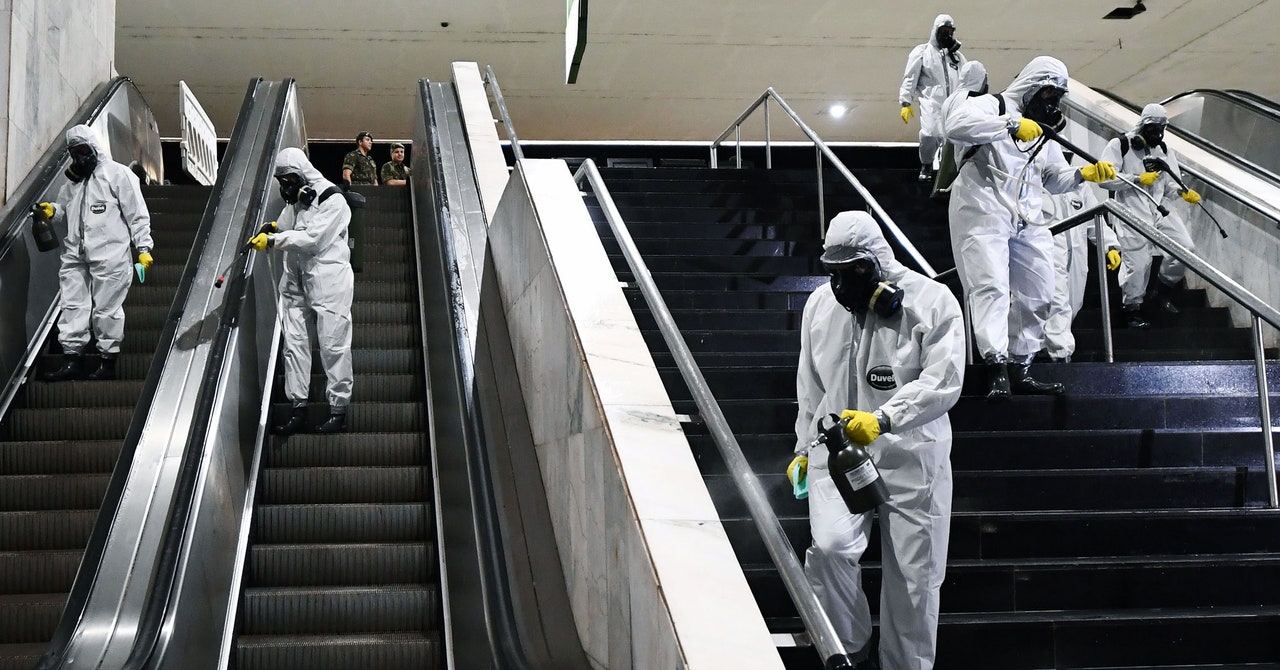For the time being, generic drugs could prove helpful to those battling Covid-19. Blood from recovered patients is also promising, though getting it to those in need is a challenge. Most of all, it’s important to remember that finding treatments take time and there are a lot of dubious theories circulating online. Whatever you do, please don’t try drinking bleach.
Meanwhile, hospitals are redesigning their facilities and retooling readily available devices to accommodate the huge influx of Covid-19 patients. Elsewhere, engineers and manufacturers are racing to make more ventilators and PPE.
What to do if you or a relative is ill
Whether you’re raising a family or living alone, it’s best to isolate at home and keep your space clean. And whether you’re sick or healthy, it’s important to look after your mind and body.
Epidemiology and Tracking
How Covid-19 spreads
We know that the virus is passed from person to person when someone coughs or sneezes, or when someone touches a surface it has landed on. But there’s still some uncertainty about how likely the virus is to spread through air and whether your risk of catching it is the same when you’re outdoors. Outbreaks spread exponentially at first but that rate slows over time, especially if additional measures are taken to flatten the curve. And some researchers are exploring the possibility that the virus could return seasonally like the common cold.
How other countries have handled it
Some countries have opted for a strict lockdown. Others, like South Korea, Singapore, and Taiwan, seemed to have squashed the curve early on thanks to widespread testing and tracing efforts. Though travellers coming from the US and Europe later spurred an increase of cases, there’s still a lot for the US to learn.
How coronavirus is being tracked
To build useful models and fully understand the coronavirus, we need to know how it has spread. Right now, lots of countries are either using smartphone apps and location data to track the spread of the virus or are working to put a contact tracing system in place. To mitigate concern that this contact tracing would be an infringement of privacy, companies like Apple and Google are collaborating on a Bluetooth-based system that would track coronavirus and notify people who have been exposed without surveilling users.
Beyond smartphones, some countries and workplaces have started using thermal cameras to detect potential fevers, and wearable devices and sewage surveillance may also prove helpful. And some city and state officials are skeptical about digital tracing, employing thousands of people to do the tracing instead.
Staying Sane
How to stay entertained
From video games to streaming services, we’re living in the golden age of digital entertainment! You can cope with cabin fever by working out, meditating, or getting really into bread baking like everyone else on the internet. And if

